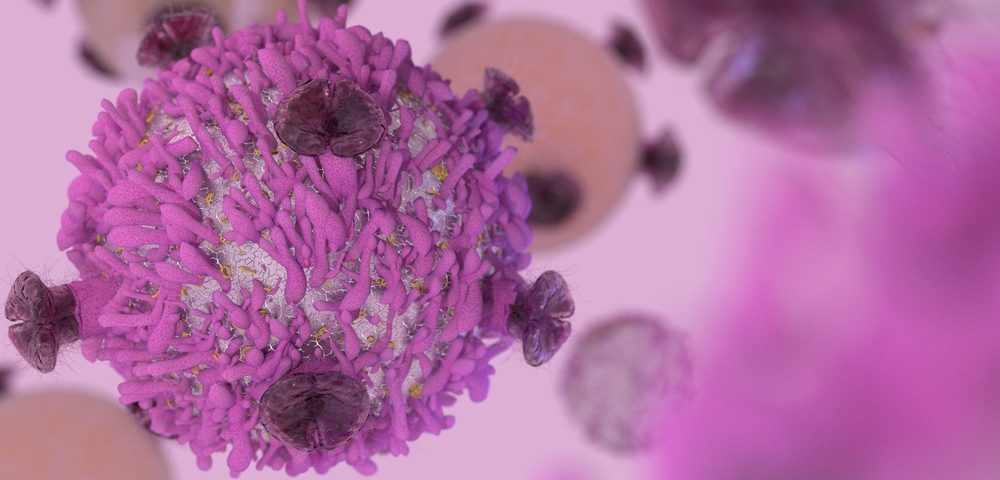Juno Therapeutics‘ immunotherapy JCAR017 eliminated a brain tumor in a patient whose lymphoma had spread to her brain, researchers at Massachusetts General Hospital Cancer Center reported.
The team wrote about the case, which involved a 68-year-old woman with primary refractory diffuse large B-cell lymphoma (DLBCL), in the New England Journal of Medicine. The article was titled “Anti-CD19 CAR T Cells in CNS Diffuse Large-B-Cell Lymphoma.”
Researchers said the patient had failed to respond to chemotherapy with etoposide, doxorubicin, cyclophosphamide with vincristine, and prednisone with Rituxan (rituximab). Doctors then tried four additional therapies, including a stem cell transplant — but all failed to stop the cancer.
The women then enrolled in a clinical trial that was testing JCAR017 (NCT02631044) against cancer. The treatment involves using immune-system T-cells to target cancer originating in another component of the immune system, B-cells.
The immunotherapy’s chimeric antigen receptor (CAR) T-cells go after the protein CD19, which appears on the surface of almost all cancers originating in B-cells. The treatment allows the T-cells to recognize and destroy the cancer cells.
At the time of the clinical trial, the patient was not on an immunosuppressive therapy.
She also did not have graft-versus-host disease (GVHD), indicating that her body was not rejecting the stem cell transplant. Just before she started the trial, a scan showed that she had a new brain lesion, suggesting that the stem cell transplant was not working. A different kind of scan confirmed the lesion.
The patient started the trial with a high dose of chemotherapy that eliminated parts of her immune system and primed her body to receive CAR T-cells. Then she received JCAR017. She experienced no adverse events from the procedure, including no release of inflammatory cytokines, no neurotoxic effects, and no GVHD.
Amazingly, a month later, two kinds of brain scans showed complete remission of her cancer.
A blip occurred two months later, when scans showed her cancer had returned. But after an incisional biopsy of the tumor, which is a very minor procedure, the tumor started receding again without needing further therapy. Researchers said the shrinking correlated with an expansion in the number of CAR T-cells in her system.
A month later, another scan showed complete remission again. This time the response was durable: The patient continues to be in remission at 12 months.
Many cancer therapies are unable to pass through the blood-brain barrier to treat brain cancers. But scientists have found CAR T-cells in cerebrospinal fluid, indicating they can pass through the barrier, which the body uses to prevent harmful invaders from getting to the brain.
“Brain involvement in DLBCL carries a grave prognosis, and the ability to induce a complete and durable response with conventional therapies is rare,” Dr. Jeremy Abramson, of the Massachusetts General Hospital Cancer Center, said in a press release.
“In addition, all available CAR T-cell trials have excluded patients with central nervous system involvement,” said Abramson, who wrote the New England Journal of Medicine article. “This result has implications not only for secondary DLBCL like this case, but also for primary central nervous system lymphoma, for which treatment options are similarly limited after relapse and few patents are cured.”
In an intriguing finding, the CAR T-cells expanded in the patient again months after the initial administration of JCAR017. This implied that something about the biopsy procedure had triggered an expansion of the CAR T-cell population that led to the regression of the tumor.
“Typically the drugs we use to fight cancer and other diseases wear off over time,” Abramson said. “This spontaneous re-expansion after biopsy highlights this therapy as something entirely different, a ‘living drug’ that can re-expand and proliferate in response to biologic stimuli.”
The team said that studying ways of reactivating CAR T-cells could make them even more effective.


